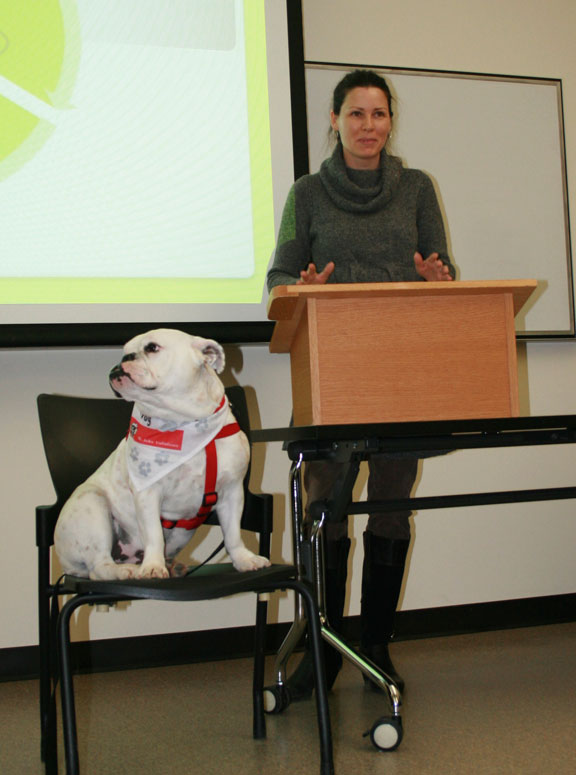Relationships are key to engaged scholarship
Engaged scholarship demands strong relationships that must be built before any research can proceed, according to experienced faculty featured at a conversation café held as part of Engaged Scholar Day on April 30.
By Colleen MacPherson The café began with short presentations by researchers, followed by round-table conversations. About 45 people attended – an overflow crowd.
The café began with short presentations by researchers, followed by round-table conversations. About 45 people attended – an overflow crowd.
In his presentation, environmental anthropologist Clint Westman explained his work with northern communities, particularly in Alberta.
"You have to have long-term relationships with communities," he said, adding that researchers must be prepared to balance many different viewpoints. "Some people oppose the oil sands while others want the benefits of economic development. Communities are not homogenous."
Researcher Colleen Dell related how she is using animals like horses and dogs to help people overcome addictions.
"There's an animal-human bond," she said. "There's something there, and I want to find out more about it."
Dell explained her work with horses near Prince Albert also taught her about the relationship local First Nations people have with the animals. Elders advised her that her program needed to include the proper dance and ceremony.
Community engagement is even more challenging when the question that needs to be asked is too sensitive.
In a separate presentation, M.J. Barrett from the Department of Curriculum Studies, explained she would like to ask how to incorporate the concept of ‘spirit' in decision-making. For some First Nations cultures, spirit is not talked about openly – it is a given that guides all discussion.
Understanding this guidance has enormous potential application, from designing school curricula with communities to forging resource development agreements that First Nations can embrace. Barrett said getting there means gaining the trust of the community, face-to-face.
"Ideally, we should use many ways of knowing to make decisions," she said.

